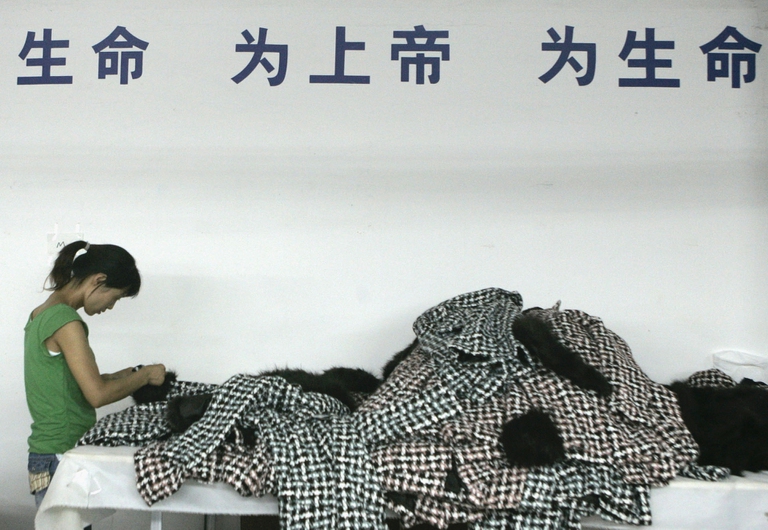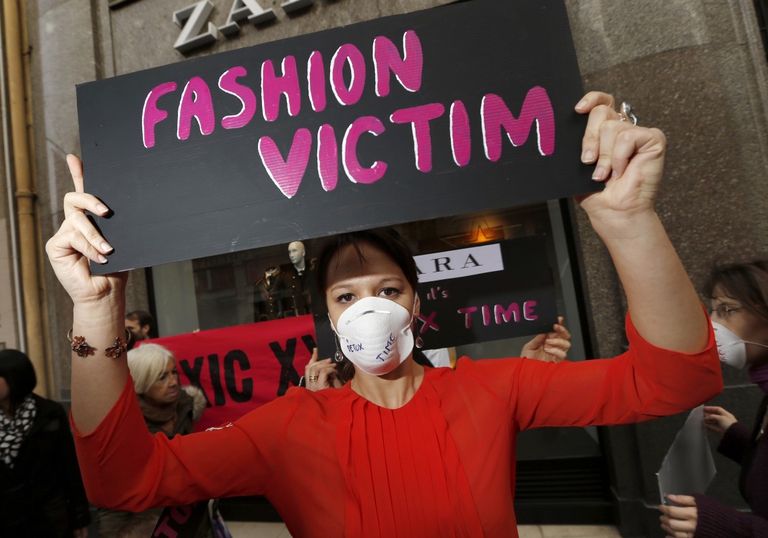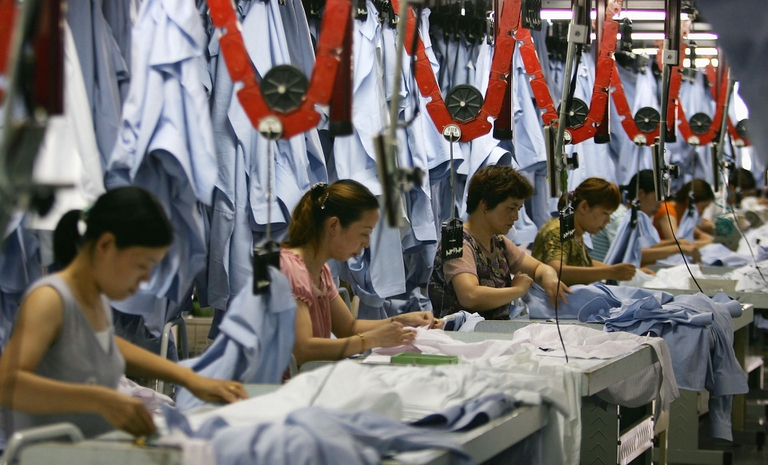https://www.lifegate.it/maxi-risarcimento-lavoratori-victorias-secret
- |
- In 2021, the Thai factory in Samut Prakan went bankrupt, immediately dismissing more than a thousand workers and denying them the receipt of severance pay, which in some cases accrued over more than ten years of activity.
- Among the clients of the factory there was also the American brand Victoria's Secret, a lingerie giant which agreed to pay the entire amount owed to the workers:8.3 million dollars.
- This compensation, in addition to being a historical precedent, is part of the brand's reconstruction process, already overwhelmed by #MeToo and now headed towards a change of direction.
Does sustainability in fashion only pay off when it is linked to environmental issues?Today like today, brands work hard to promote themselves as sustainable;most of the activities undertaken and communicated, however, focus on respecting the environment and reducing the impact of production. But what about social sustainability? Isn't this also a very important part of the production process to take into account?

Sustainability in fashion is not just environmental
We cannot consider sustainability as a concept in watertight compartments: on the one hand there is the health of the environment, which certainly needs to be safeguarded as much as possible, but on the other there is the health and treatment of workers, which brands too often forget to mention when it comes to talking about sustainability.
Maybe it's because the health of the planet concerns everyone, while what happens in a factory on the other side of the world is far from our eyes and our problems and we only remember it when something big happens:the tragedy of Rana Plaza, or a story with a happy ending like the one that recently involved the lingerie brand Victoria's Secret and 1,250 of its former workers.This is a story that has not found particular space in the Italian media, but which marks an (albeit small) step forward in the history of worker protection.

Victoria's Secret, the angels and production in Thailand
Victoria's Secret is an American lingerie brand founded in the late Seventies by a husband and wife which was based on a simple recipe: ultra sexy mail order lingerie.The growth of this marital startup was important right from the start, but it has exploded exponentially since, in 1995, the brand has started to create its iconic fashion shows.During these mammoth events the most popular top models paraded, from Gigi and Bella Hadid to Alessandra Ambrosio And Miranda Kerr, carrying gigantic wings on their backs, hence the nickname "Angels" and the need to train thoroughly to be able to parade wearing them.The highlight of the show was the exit of the top model, for whom the Fantasy bra, or a jeweled bra created specifically by the jeweler Pascal Mouawad worth millions of dollars.

After almost twenty-five years these pharaonic events were definitively canceled in 2019, collapsed after the brand was completely overwhelmed by the movement #MeToo.Having based communication and business on the image of sexy and provocative women has not paid off at a time when the system has begun to become aware that physical and cultural products like these they only fuel gender imbalances and stereotypes.As if that wasn't enough, a 2020 New York Times scoop revealed that the then top manager Ed Razek he had become the protagonist of a story of harassment and abuse towards the models.
The American giant, which a couple of years ago many thought was definitively doomed, was then acquired in 2020 by Sycamore Partners, a fund of private equity, and got back on track by breaking through the roof of the 5 billion dollars in annual turnover (around 4.2 billion euros).Today Victoria's Secret employs more than 32 thousand people and can count on a distribution network of approximately 1,400 stores worldwide.However, this count does not include thousands of workers employed in the factories supplying the brand, also located in Southeast Asia.

The latest storm to hit Victoria's Secret concerns one of these factories, the Brilliant alliance thai by Samut Prakan, which went bankrupt in 2021, leaving i at home overnight 1,250 workers which he employed at the time.In addition to being dismissed outright, the employees in question were collectively denied severance pay (severance pay), accumulated by some over more than a decade of working relationship.
The huge compensation of 8.3 million dollars
For some, failure to pay severance pay meant seeing it taken away the equivalent of almost four years' salary accumulated as severance pay, practically your entire life's savings.The factory also produced underwear for two other brands controlled by Sycamore Partners, Lane Bryant And Torrid:but it seems that only Victoria's Secret signed the agreement to compensate workers with $8.3 million.
Victoria's Secret, which since the post #MeToo period has been working hard to give a more inclusive and ethical brushstroke to his image, then agreed to pay a record settlement, perhaps the highest paid to date for wage theft cases like this.“For several months we have been in active communication with factory owners to facilitate a resolution,” the company clarified in a statement.“We regret that they were ultimately unable to resolve the matter on their own, so to ensure that workers received the full amount owed, Victoria’s Secret agreed to advance severance funds to factory owners.”

According to what was released by group of activists that fought for compensation, the international workers' rights group Solidarity center, this was the highest amount paid in a wage theft settlement.Solidarity center acted in concert with the Worker rights consortium, which monitors the situation in Thailand and beyond:after the pandemic, wage theft is the order of the day and would have involved, even if not for such a high amount, about 31 factories in nine countries.
The executive director of the consortium, Scott Nova, stated that sensational cases such as the one involving Victoria's Secret and the Samut Prakan factory are merely the tip of the iceberg and that the issue of wage theft in the clothing industry is the result of the pandemic period and the temporary stop to requests for the supply of clothing.
New creative direction, new life
On the brand front, however, since last January there has been another creative director at the helm of Victoria's Secret, Raúl Martinez, which promises to revolutionize the brand from the ground up.Compensation aside, the change in direction is also evident from the latest campaign, which involves activists for LGBT+ rights, curvy and transgender models.
Whether this radical shift towards inclusiveness is one marketing move or a push for real change, only time will tell.For the moment the former workers of the Samut Prakan factory they got their compensation and the West adds a little more awareness about what happens in the places where most of our clothes are produced.
